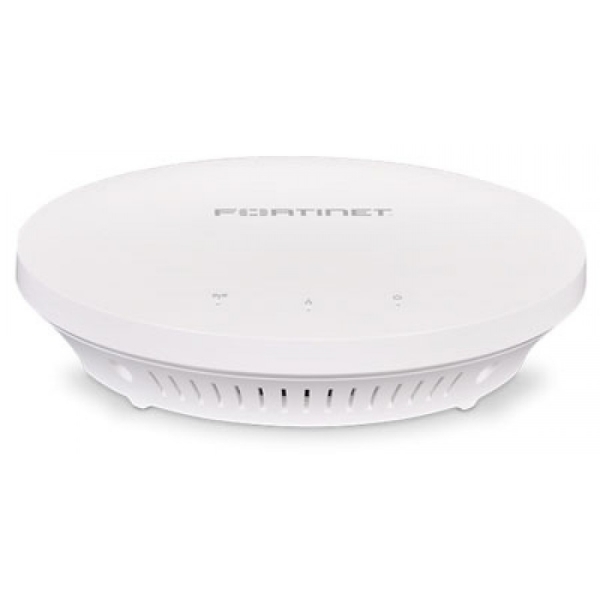
802.11ac Indoor Wi-Fi Access Point
Browse catalog of our products

802.11ac Indoor Wi-Fi Access Point
Indoor WLAN Access Points have been purpose-built to meet the Wireless LAN Network Access requirements of the SMB, Distributed Enterprise and Mid-enterprise. FortiAP Indoor WLAN Access Points come in various form factors, including a smoke detector style form-factor as well as sealed plenum-rated models. The sealed models are built to withstand an extended temperature range, suitable for non temperature controlled warehouse type environments, or for installation above ceiling tiles in office locations. Smoke detector-style models are ideal for hotel or school hallways installation, where a less obvious and discrete installation is desirable. Selected models are also equipped with RP-SMA antenna connectors for use with directional or panel antennas to provide optimal signal coverage in shopping centers, factories and corridors.
FortiAP Indoor WLAN Access Points are versatile in their deployment and can be configured in either AP mode or mesh mode. In AP mode, indoor wireless LAN access can be provided to users and guests, by leveraging the FortiGate security and authentication features. When configured as a wireless mesh client, the indoor WLAN Access Points can deployed to satisfy wireless point-to-point or point to multipoint requirements, without the need for additional network cabling.
The FortiAP 221C, FortiAP 223C and FortiAP 321C are dual-radio 802.11ac APs, designed for medium density indoor environments, including hotspot and guest or social WiFi deployments. The smoke detector form factor of the FortiAP 221C and FortiAP 321C is perfect where discreet installation is required, like school classrooms and retail stores. The RP-SMA antenna connectors on the FortiAP 223C allow directional or panel antennas to be installed, providing a range of antenna options in environments with challenging coverage requirements. Both the FortiAP 221C and FortiAP 223C are also dual-radio and dual-band devices, supporting simultaneous client connections and rogue AP scanning for PCI compliance.